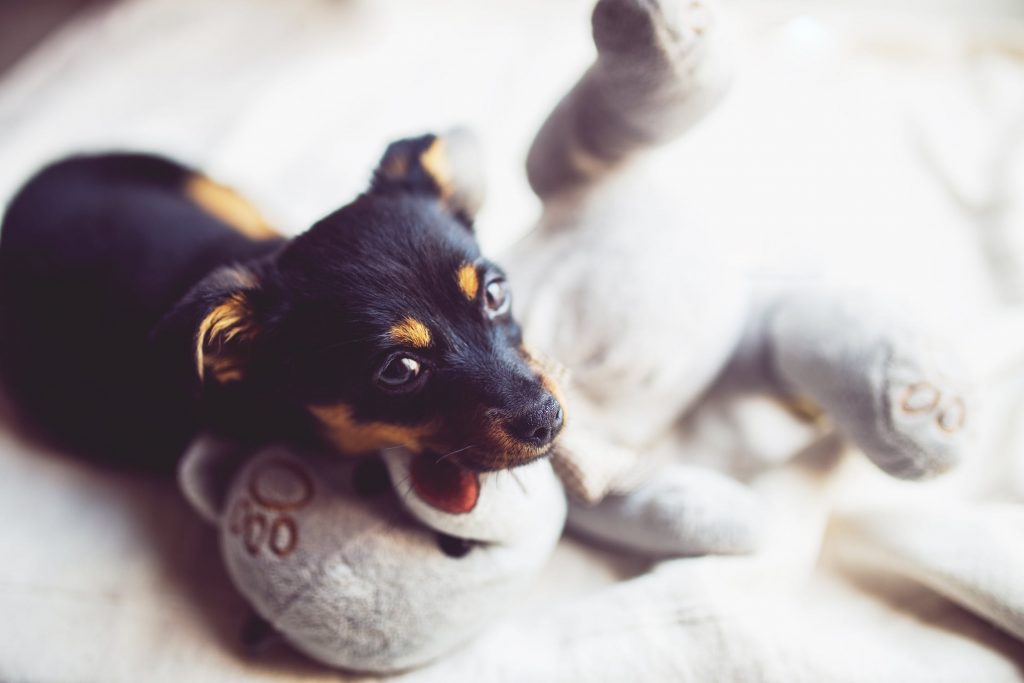Why do puppies bite?
 So, you’ve found your dream puppy and welcomed it into your home, but you’ve discovered that your cute dog has some really sharp teeth hidden away and wants to use them! What to do?
So, you’ve found your dream puppy and welcomed it into your home, but you’ve discovered that your cute dog has some really sharp teeth hidden away and wants to use them! What to do?
While puppy biting is totally normal, it can come as somewhat of a surprise to owners. Puppies use their mouths to examine their surroundings and explore and when in a pack they use their teeth to play with their brothers and sisters, gently biting each other. However, while it is completely natural for puppies to bite, it doesn’t change the fact that if they manage to get a grip on you it will likely cause some pain. So, what can be done about it?
When puppies are in a pack they will bite on their mother, however when they bite too hard their mother will bark or yelp and this will startle the youngster and teach them to bite more gently. If your puppy was not taught this then they may need to learn. You can teach them in a few different ways.
First of all, you can teach your puppy with your voice, by delivering a stern ‘no’ in a deep and commanding voice when they chew or bite on something that they are not supposed to. You can also mimic the puppy’s natural behaviour in a pack by reacting how their mother would if they bit too hard. For instance, if your dog bit down on your finger you could yelp and let your hand go limp until they let go – forcing your hand away could hurt their sensitive teeth or make them bite down harder.
There are also deterrents and distraction techniques that you can employ to stop your puppy from biting at you. One method is to buy a distracting toy that you can bring into play when they start to nip or bite – for example a ball or a chew that you can throw across the room. Another way is to use a foul-tasting spray that your puppy finds unpleasant on items that you don’t want them to chew on.
Don’t forget that while nipping and biting are annoying behaviour, they are natural for a puppy so it is unfair to scold them for doing so. Instead you should try and discourage them by re-enforcing good behaviour and praising them when they do something well.
If you are still having trouble with training your puppy to stop biting, or you are finding that your dog is still biting in their adulthood then you should seek advice from a professional dog behaviour therapist.
For more information about dog behaviour therapy sessions, please visit https://www.witsend4pets.co.uk/behaviour.php or alternatively call us on 0116 244 2455 to book a session.